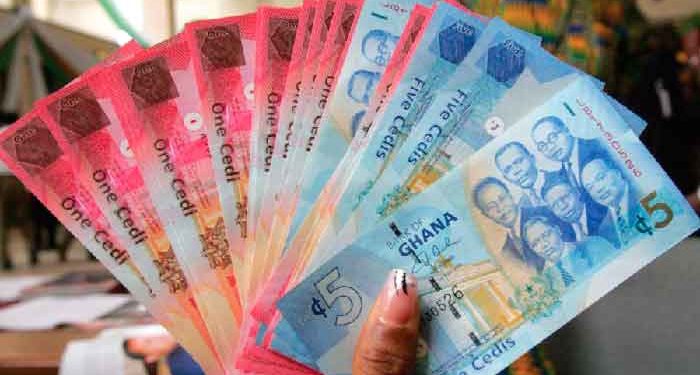Courage Martey, an economist, has praised the cedi’s performance so far this year.
In the first two quarters of 2021, Ghana’s native currency remained relatively steady, depreciating by less than 1% versus the US Dollar between January and June.
According to Mr. Martey, the currency’s stability may be ascribed to the country’s resumed influx of foreign portfolio investment, particularly in the first quarter of the year.
He highlighted to Citi Business News how the main variables contributed to the local currency’s relative stability versus the US Dollar.
“Foreign investment inflows really helped the cedi, particularly in the first quarter of this year. We also didn’t see a lot of interest from corporations and multinationals. As a result, the cedi was bolstered by supply, which was not absorbed by demand.”
“We witnessed a continued rise in corporate demand in the second quarter. The need for currency to repatriate this earnings pushed up the market’s demand pressure. Despite the fact that demand was rising, we observed it occurring in a highly regulated environment as a result of the Bank of Ghana’s involvement. However, we finished the quarter by reversing all of our gains from the first quarter, so the cedi looks to be reasonably steady at the conclusion of the first half of this year.”
The cedi’s performance
After falling by more than 8% and 12% against the US dollar in 2018 and 2019, the Cedi showed uncommon resolve last year, losing just around 3.8 percent of its value versus the US dollar.
The issue of a US$3 billion Eurobond in February 2020, along with the Bank of Ghana’s execution of efficient measures such as FX forward auctions and other variables, meant that the local currency remained steady throughout 2020.
The stable trend has maintained until 2021. The Ghana Cedi started the year 2021 at GHS5.76 pesewas per dollar. It was trading at GHS5.75 pesewas to a dollar by the middle of the year, which ended in June.
According to Bank of Ghana data, the cedi has declined by 0.17 percent as of Thursday, July 1, compared to a depreciation of 2.32 percent in the same time last year.
Forecast
For the remainder of the year, Courage Martey believes the Ghana Cedi will stay steady when compared to its counterparts on the African continent.
“If you look at what we did last year, we really devalued by 3.9 percent versus the US Dollar, and we’ve traditionally declined on a yearly basis, which is mainly due to our current account deficit. In this instance, you spend more dollars than you make, and the disparity is what causes the currency to depreciate. As a result, even if we run a current account deficit this year, we should expect to see some depreciation.”
“This year’s current account deficit is anticipated to be quite modest. As a result, we don’t anticipate a substantial change in depreciation over previous year. Overall, it is a market decline that may be described as tolerable.”
Source: CITINEWSROOM



























